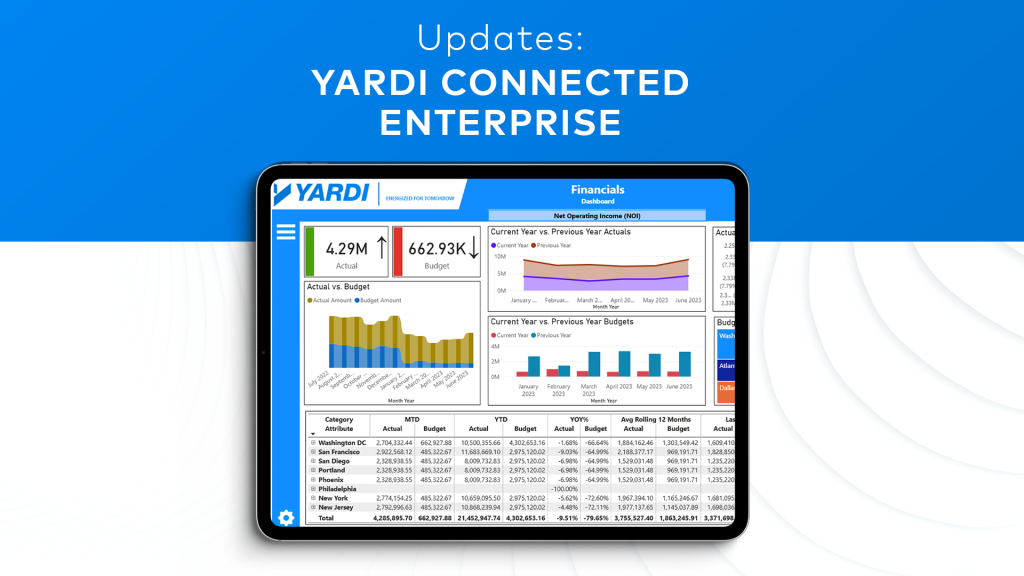By Yardi Blog Staff on April 22, 2020 in Global
Our previous article explored key portfolio risk mitigation challenges faced by real estate firms amid today’s uncertain market conditions and the likelihood that future income streams will fundamentally change.
This time we’ll examine ways to help businesses that are currently forced to operate in a very different manner and environment for the foreseeable future. The ability of those now working from home to maintain productivity, collaboration, informed decision-making and productive action will be tested to the limit – not the least by kids running riot in many households!
Mitigating risks associated with working from home requires:
- Adopting technology infrastructure that enables collaboration and process continuity.
- Addressing capital transactions and investor queries satisfactorily.
- Understanding the impact on reporting when data is drawn from multiple sources and collections systems and processed by multiple people.
- Successfully transitioning fund raising, normally handled in person by general partners, into a remote undertaking.
- Reliable and immediate access to key performance indicators from all business operations, from tenant transactions to the investor level.
You might also want to consider how working from home now might reshape how you conduct business in the future (e.g., more videoconferencing, less travel, more remote viewing of properties, the potential to reduce carbon emissions). We don’t know how long the pandemic will run and thus delay the return to normal working patterns. Could demand for office space tail off permanently, for example?
Real estate investment managers can gain the necessary data transparency, control and understanding of their investment data in a remote work environment just as they do in the office – with a single connected platform that allows collaboration between teams, while centralising all their key financial and operational real estate metrics, even if outsourced, for analysis, reporting and decision-making. Automating the real estate fund cycle eliminates the possibility of losing data transferred among systems and times capital calls to updated operating data. It also simplifies financials consolidation, makes investor reporting easier and provides insight into assets. Additional benefits include easier tracking of deal progress and terms and calculation of returns and comparisons to benchmarks. All of this serves to mitigate risk.
Some business necessities don’t change, even in a crisis as monumental as COVID-19, including quick analysis of investor, fund and portfolio key metrics, effective communication with investors, and efficient management of fund raising and deal tracking. An integrated platform for investment management can be a real estate investment manager’s best tool for maintaining normalcy at this unprecedented time.
Learn how Yardi investment management solutions drive efficiency and investor satisfaction – whether you’re at home, in the office or in the field.


